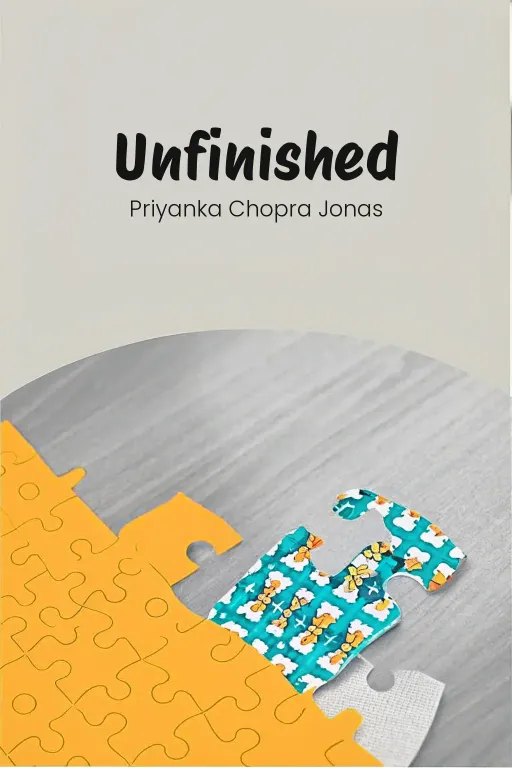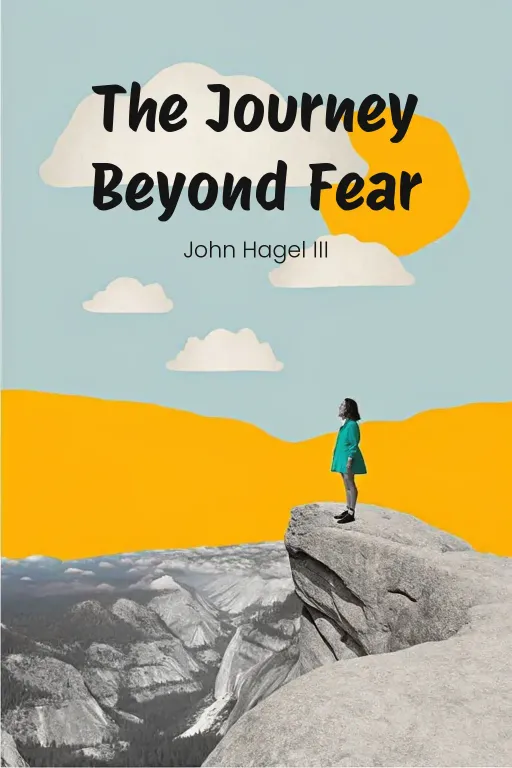
Boss Up: Rick Ross's Blueprint for a Lasting Impact
Podcast by Beta You with Alex and Michelle
A Hustler's Guide to Building Your Empire
Boss Up: Rick Ross's Blueprint for a Lasting Impact
Part 1
Alex: Hey everyone, welcome back! Today, we're diving deep into the world of Rick Ross, yeah, the rapper. We're going to explore the mindset of the man himself. Ever been knocked down so hard you thought about quitting? Or maybe you’re trying to figure out how to turn your own skills into something truly significant? Well, this episode, inspired by his insights, might be just what you need. Michelle: Absolutely. We’re cracking open Rick Ross’s book, "The Perfect Day to Boss Up." Now, I know what some of you might be thinking: "What can a rapper possibly teach me about life?" But trust me on this, it's not just about the music. It’s a masterclass in resilience, strategic thinking, and building something real from the ground up. Ross didn't just weather the storms; he harnessed the energy to propel himself from artist to entrepreneur to, well, "The Boss." Alex: Exactly! This book is really a blend of memoir and a practical guide to success. Ross shares his story and the lessons he’s learned, and these lessons resonate far beyond the music industry. We're talking about pure hard work, financial smarts, emotional intelligence, and the kind of mindset that can transform you into a self-made mogul. The stories are raw, authentic, and – most importantly – actionable. Michelle: Right, actionable is key. And we’re going to break it all down into three main themes today. First, we have resilience and adaptability. It’s about how to navigate chaos and find your footing when life throws those inevitable curveballs. Like, imagine your touring plans get completely derailed by a pandemic. Instead of giving up, you find a way to pivot and, yeah, even profit. Alex: Exactly ,then there's the hard work and strategic planning. Ross is relentless when it comes to working hard, very driven, he is so focused, he knows what he wants, and he knows how to get it. Whether it's diversifying income streams or turning hobbies into viable businesses, he’s always looking for that opportunity. I think that's quite admirable. Michelle: Without a doubt. And finally, we'll discuss legacy and community impact. This is where things get super interesting. Ross isn’t just accumulating wealth; he's actively investing in people. It's about mentoring, empowering others, and building something that lasts, something that outlives your own personal success. So, the real question is, are we listening? Alex: Yeah, whether you’re seeking practical advice or just need that extra push to keep going, this episode is packed with takeaways from one of the most genuine voices of hustle out there. So, let’s jump into this blueprint and see what we can learn from "The Boss."
Resilience and Adaptability
Part 2
Alex: So, Michelle, picking up where we left off, resilience and adaptability – what a perfect starting point, right? It's really the foundation of everything Ross talks about in his book. Starting with resilience really helps us understand how he not only got through tough times like the pandemic, but also turned them into opportunities, you know? Because resilience isn't just about surviving; it's about preparing the way for real change. Michelle: Totally, Alex. And speaking of change, can we dive into how he reacted to the pandemic? I mean, losing millions in touring money overnight – BAM – one of his main sources of income just gone. Most people would freak out. But then there's Ross, chilling on his 235-acre estate, plotting his next move. I mean, it's like when life gives Ross lemons, he doesn't just make lemonade; he goes and builds a whole lemonade empire, right? Alex: Absolutely! What really grabbed me was how quickly he changed his mindset. He didn’t get all caught up in feeling sorry for himself about the "Feed the Streetz Tour" being canceled or the money he lost. Instead, he realized he had something precious: time. Time to think and refocus. That estate, The Promise Land, became way more than just a symbol of his success. It became his operations center for reinventing himself. Michelle: And let's not forget the whole story about the John Deere tractor. Alex, I know you especially loved this one, didn't you? He buys a tractor during lockdown and starts mowing his own lawn. Most people would see that as... well, just a tractor. But leave it to Ross to find some kind of deeper meaning and metaphor in cutting the grass. Alex: Oh, absolutely, Michelle! That tractor wasn't just about mowing grass; it was him showing his resilience in a very real way. He saw it as a symbol of growth, of making a fresh start, of growing something new from uncertainty. He says, "You've got to plant the seeds before you can harvest." And we see that in what he does, from writing his book when he had some downtime to building up his other businesses, like his Wingstop franchises. Michelle: Okay, hold on a second – let's talk about that diversification strategy. This is where resilience really meets adaptability head-on. With live shows gone, Ross doubled down on his entrepreneurial side. It's like he was ready for the storm way before it actually hit, you know? Wingstop, Luc Belaire, social media branding – he wasn't just relying on one source of income. That's adaptability in action, wouldn't you agree? Alex: Totally. He realized that to do well in unpredictable situations, you can't put all your eggs in one basket. Pandemic or not, depending only on live shows would have been dangerous. By diversifying long before the crisis, he made sure he had options – and having options is the best way to defend yourself against the unknown. Michelle: Yeah, but let me ask you this, Alex. Do you think his approach – the whole “be ready for war” mentality – is realistic for most people? I get that staying sharp physically and mentally is important, but not everyone has a 235-acre estate to fall back on or the money to suddenly change direction and invest somewhere else. Alex: That's a really good point, but Ross's message isn't about having luxury; it's about building a certain kind of mindset. Being “war-ready” isn't about owning a huge amount of land or buying a tractor; it's about being prepared, whether that means saving money, learning new skills, or being flexible in a changing world. What he's saying is, don't wait for trouble to find you before you start thinking about how you'll deal with it. Plan ahead, stay alert. Michelle: Okay, so in that sense, it can be scaled. I mean, none of us are about to buy military-grade vehicles like he did, but the bigger lesson is about being ready and adaptable no matter what. You're right – whether you’re working a 9-to-5 or growing your small business, that "thinking ahead" mentality can be applied. Alex: Exactly. And let's not forget that Ross wasn't always "The Boss". He talks about how he struggled at the beginning – those difficult years when he was working hard to improve his skills and facing rejection. For him, resilience didn't just appear during the pandemic. It was built over years of hard work. That's why he didn't fall apart when adversity came knocking. Michelle: Right, so the main point is: resilience isn't just for major crises; it's a muscle you build every day over time. Whether you're changing your direction during a pandemic or brainstorming your next project, it's about staying open to new possibilities. Alex: And that's what's so great about adaptability – it's the other side of resilience. Resilience helps you get through obstacles, and adaptability makes sure you can find your footing in a world that's always changing. Together, they're a powerful combination for success. Michelle: Couldn't have said it better myself. And honestly, Alex, it's good to see someone like Ross giving us such a practical framework for these buzzwords. Resilience, adaptability – they're not just something you see on motivational posters. They're something actionable, based on real decisions he made when things got tough. Alex: Exactly. His story just proves that the best opportunities for growth often come when you're pushed out of your comfort zone. Whether it's making the most of your resources or changing how you define success, Ross challenges us all to stop seeing setbacks as the end. Instead, they're just the beginning of something bigger.
Hard Work and Strategic Planning
Part 3
Alex: So, all that resilience really sets the stage for our next big topic: the power of hard work and strategic planning. You see, Michelle, if resilience is the foundation, then putting in the focused effort and having a solid plan, that’s what builds success, brick by brick. Rick Ross exemplifies this; his hustle isn't random; it's carefully thought out, turning effort into real value through smart strategies. Michelle: Exactly, Alex. And this is where Ross becomes more than just an inspirational figure. He gets tactical. Sure, anyone can say, "work hard," but Ross combines that grind with real precision. Like, think back to his early days in the music scene – ghostwriting songs, working behind the curtain, paying his dues to really master his craft. That wasn't just blind hustle; it was strategic prep work. Alex: Precisely. He’s very open about how, before the fame, he spent years ghostwriting. He wasn’t just honing his lyrical skills; he was understanding how to write music that clicks with a mainstream audience. And apparently, he even admits he overcomplicated things at first. He was trying to sound too complex when people just wanted relatable songs. Once he adapted and simplified his music to be more commercially appealing, that's when he saw real success. That's hard work, definitely, but it’s combined with strategic insight. Michelle: And he applies this outside of music too, doesn’t he? His finances are a great example. He didn't just blow his first Def Jam advance, which, let's be honest, a lot of people would have done. Instead, he reinvested a good chunk of it strategically. It wasn't all flash. He put money back into recording, brand-building, things that would pay off down the line. Every move seemed like a deliberate step in a bigger plan. Alex: Absolutely! And later, when his career was more established, he kept up that thoughtful approach. He diversified those income streams. That Wingstop example is so telling. Michelle, he didn't just slap his name on the franchise like we see with a lot of celebrity endorsements. He actually got involved in management, making sure it was profitable. He treated it as a real investment, not just a vanity deal. Michelle: Which, let’s be honest, is not always the case. A lot of celebrities jump into business ventures, but do they all take the time to understand the operation inside and out like Ross? And then there's "The Promise Land"— Alex, correct me if I’m wrong, but Ross basically took this massive expense, a sprawling mansion, and turned it into a revenue generator, right? Alex: You nailed it, Michelle. He turned what many would consider a liability, a very high-maintenance estate, into an actual asset. How? By renting it out for huge productions like Superfly and Coming 2 America. Suddenly, it's not just a fancy home; it’s an income-generating property, and it markets his brand. That's long-term money planning at its finest – taking something that usually drains resources and reworking it into something that adds value. Michelle: It's actually genius. But let's zoom in on something essential: financial discipline. One reason Ross has been able to make these moves is that he shows restraint. He knows when to save, when to reinvest, and when to take calculated risks. People don't always associate those qualities with a rapper who flaunts wealth, but Ross is pretty open about prioritizing sustainability over instant gratification. Alex: Absolutely. He even says in the book that money is just a tool, not the end. It’s a means to stability, growth, and leaving something behind. His Atlanta recording studio is a great example. Sure, it's a big upfront cost, but it's also a creative hub and an asset that will keep generating income for the long haul. Michelle: I like how you put that, Alex—money as a tool. It sets Ross apart from someone who just gets rich and spends it all. There’s a clear thought process driving his decisions, a focus on what wealth “can” do if you use it wisely. Alex: And this connects to something else Ross highlights: financial discipline isn't about deprivation; it's about prioritizing. He talks about doing lifestyle audits, figuring out what expenses really align with your goals. That’s why, even as he enjoys the finer things, he makes them work for him. It’s not about saying no to enjoyment; it’s about finding that balance. Michelle: Alex, hold on a second, though. This whole idea of lifestyle audits makes sense for him now, right? He’s at the top of his game financially. Is that mindset really achievable for someone starting out, just trying to cover rent? Alex: Honestly, Michelle, I think it's even more important when you're starting out. Ross mentioned that small wins matter, right? For someone at the beginning of their journey, a lifestyle audit might be as simple as cutting unnecessary subscriptions or learning how to budget your groceries. The idea is the same – make sure your resources, no matter how limited, are aligned with your goals. It’s not about how much you have but how well you use it. Michelle: That’s fair. And that focus on small victories also ties into the fact that success isn’t about some massive, overnight breakthrough. It’s the results of steadily stacking up incremental wins over time. Ross emphasizes that every step, every adjustment, builds up to something bigger. Patience might not make for great headlines, but it’s essential. Alex: A hundred percent. He references Malcolm Gladwell’s “10,000-hour rule” to stress that mastery takes consistent practice. Ross didn’t become a mogul overnight — it was years of effort, rejecting quick wins, and focusing on sustainable growth. And he celebrates the small victories because they reinforce that whole process. Michelle: Definitely gives a new meaning to "trust the process." But you know what really makes Ross’s philosophy stand out, Alex? He gives back. He’s not just building an empire for himself; he’s empowering others. Look at how he mentors artists through Maybach Music Group. He's opening up opportunities for others to have success, which, not coincidentally, elevates his brand. That's real long-term thinking. Alex: Oh, absolutely. It's the ultimate example of strategic growth, when your success uplifts those around you, it strengthens everything you've built. Ross shows us that strategic planning isn't just about personal gain; it's about cultivating a legacy that lasts. By empowering others, his influence will stretch far beyond his own achievements. Michelle: And that's the key takeaway, isn’t it? Hard work plus smart strategies leads to a lasting legacy, not just fleeting success. It’s not just about the hustle – it’s about hustling with purpose.
Legacy and Community Impact
Part 4
Alex: So, after laying that groundwork of hard work and strategy, the conversation naturally shifts to the bigger picture: leaving a legacy. Ross really pivots from just personal wins to something far more impactful – how your achievements can empower others and spark positive change, you know? Michelle: Exactly, Alex. Legacy isn't simply about racking up awards or wealth; it's about how your accomplishments affect lives beyond your own, right? And with Ross, it’s not just about exiting the game at the top. It’s more about reinvesting in the system – mentoring, uplifting people, and creating a long-lasting impact. Alex: Right. It's really the culmination of Ross's journey, linking resilience and hard work to this larger aim of collective growth and inspiration. It’s not just, "Look what I’ve done," but "How can what I’ve done pave the way for others?" Let's jump into his mentorship philosophy – definitely one of the most interesting parts of his legacy. Michelle: Ah, you mean that "When they shine, I shine" mantra? Classic Ross. He doesn't see mentoring as just a nice thing to do; he views it as a mutually beneficial investment in people. Look at Meek Mill and Wale, two major successes from Maybach Music Group. Ross didn't just give them a platform; he gave them the resources, guidance, and the vision to “really” become leaders. Alex: And, get this, he also built an ecosystem of trust and respect. Ross's mentorship isn’t about control—it’s about genuine collaboration. He stresses that promoting their independence is key to collective success. Take Wale’s fusion of hip-hop with poetic storytelling, or Meek Mill’s emergence as a voice for social justice. Ross pushed them to find their own paths, knowing that their growth ultimately strengthens everyone. Michelle: That's what real leadership looks like, doesn't it? Empowering people to stand on their own instead of making them dependent. But do you think this approach holds up outside of entertainment? I mean, the music industry thrives on collaboration. Would it work as well in, say, corporate or startup environments? Alex: Absolutely, Michelle. The principle is solid no matter the field. If you're a manager, mentor, or team leader, empowering those around you makes the whole team stronger. It's about creating an environment where people feel supported enough to innovate and lead. Ross proves that nurturing others isn’t a risk—it’s an investment. When you elevate individuals, you're elevating the whole group, right? Michelle: Okay, fair enough. And speaking of elevating groups, let's talk about Ross's community initiatives. Jetdoc, for example. Alex, that wasn’t just some flashy PR stunt, was it? Alex: Nah, definitely not. Jetdoc, his healthcare platform partnership, tackles a serious, and often ignored issue: the systemic inequalities in Black and brown communities when it comes to medical access. Ross isn't just talking about change; he's actively making healthcare more affordable and accessible. His reasoning is spot on: without your health, everything else—money, possessions, even your ambitions—becomes meaningless. Michelle: And that's what I respect. Ross could've easily stuck to industries like food or fashion and made a quick buck. Instead, he deliberately chose to address a deeply personal issue. Remember, Ross himself had health scares – a seizure, wasn’t it? – that probably drove home how critical health “really” is. Alex: Exactly, Michelle. He even calls it a wake-up call. The fact that he uses his resources to dismantle systemic barriers shows he “really” grasps his responsibility as an influencer. It's not just about giving back—it’s about sustainably building something that will last. Michelle: That's a key point – sustainability. Unlike fleeting donations, Ross focuses on embedding solutions, like Jetdoc, into communities to create lasting value. But Alex, what about people who don't have Ross’s resources? How can you even begin to think about community impact when you're not, you know, sitting on acres of farmland? Alex: That’s a great question, Michelle. And Ross’s message is scalable. Community impact doesn't need millions of dollars to start. It can be as simple as mentoring someone, volunteering your skills, or using your network to connect people to opportunities. Even small, consistent actions can lead to big changes over time. Michelle: That makes sense. And get this—Ross doesn't just stop at external actions. A huge part of his legacy philosophy is authenticity. You've got to start by being true to yourself. Alex, why do you think Ross emphasizes staying authentic so much? Alex: Because authenticity builds trust. For Ross, staying true to his values and experiences isn’t just a moral choice—it’s strategic. People respect him because his brand isn’t fabricated. Whether he’s talking about growing up in Carol City or hustling his way to success, his audience knows the man is genuine. That connection makes his message resonate. Michelle: And I think that authenticity is what allows him to stand out in industries where image can often feel... manufactured. He’s not trying to be anyone else; he's owning his unique story. But Alex, let’s talk about how this plays into his broader idea of legacy. Is authenticity just about being relatable, or is there something deeper? Alex: There's definitely more to it, Michelle. Authenticity is the bedrock of trust, and trust is what makes a legacy endure. When Ross urges people to embrace their individual journeys, he's saying: don’t build on a shaky foundation of imitation or shortcuts. A legacy, by definition, lasts beyond your lifetime. It has to be rooted in something real, or it simply won't last. Michelle: It all clicks when you see how personal his projects are – from his lyrics to his entrepreneurial endeavors. Everything ties back to his identity. He’s not just using his success to benefit himself but to make sure that those roots stay firmly planted in his community and his values. Alex: Exactly. It’s this layered approach—mentoring individuals, tackling systemic issues, and staying authentic—that makes Ross’s vision of legacy so powerful. When he says, "Every boss started out a worker," he’s not just talking about appreciating the grind. He’s reminding us that true leadership is about lifting others as you climb, you know? Michelle: And that brings us to one of the most powerful takeaways from his philosophy: it’s not enough to succeed for yourself. The real measurement of success is how many people you’ve empowered along the way. Alex: Absolutely, Michelle. A legacy of empowerment – that's what Ross is challenging us to think about. How can our work, our values, and our decisions leave a positive, lasting ripple effect for others?
Conclusion
Part 5
Alex: So, to bring it all together, we've really dug into Rick Ross's formula for bouncing back, putting in the work, and building something that lasts. From seeing opportunity when things get tough, like during the pandemic, to really getting smart about money and helping others grow, Ross proves that success is more than just grinding away. It's about how you think, how you plan, and the difference you make. Michelle: Exactly, Alex. And at the heart of what Ross is saying is a challenge to aim higher. How do we handle tough times? How do we turn effort into something valuable? And maybe most importantly, how do we lift others up along the way? Whether it's finding new ways to earn, taking a hard look at our spending, or redefining what it means to lead, his lessons are useful and can be applied at any level. Alex: Right. The big message here? Success isn't just one place you arrive at; it's a constant journey. Being able to bounce back helps you overcome obstacles, hard work lays the groundwork, and building a legacy means you're still making a difference long after you're gone. Ross's story is a great reminder that setbacks aren't the end of the road—they're a chance to start over and do things differently. Michelle: So, here's what we want you to think about: how are you stepping up your game in your own life? Whether it's a small change or a major move, take some inspiration from Ross—stay true to yourself, be ready for anything, and remember that your hard work isn't just for you. It's about creating something that will last.









